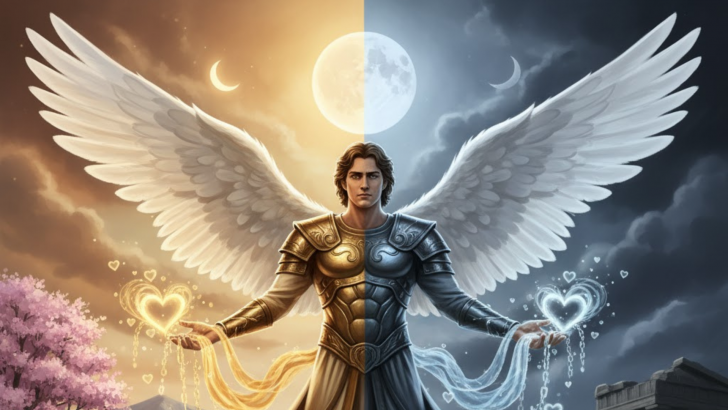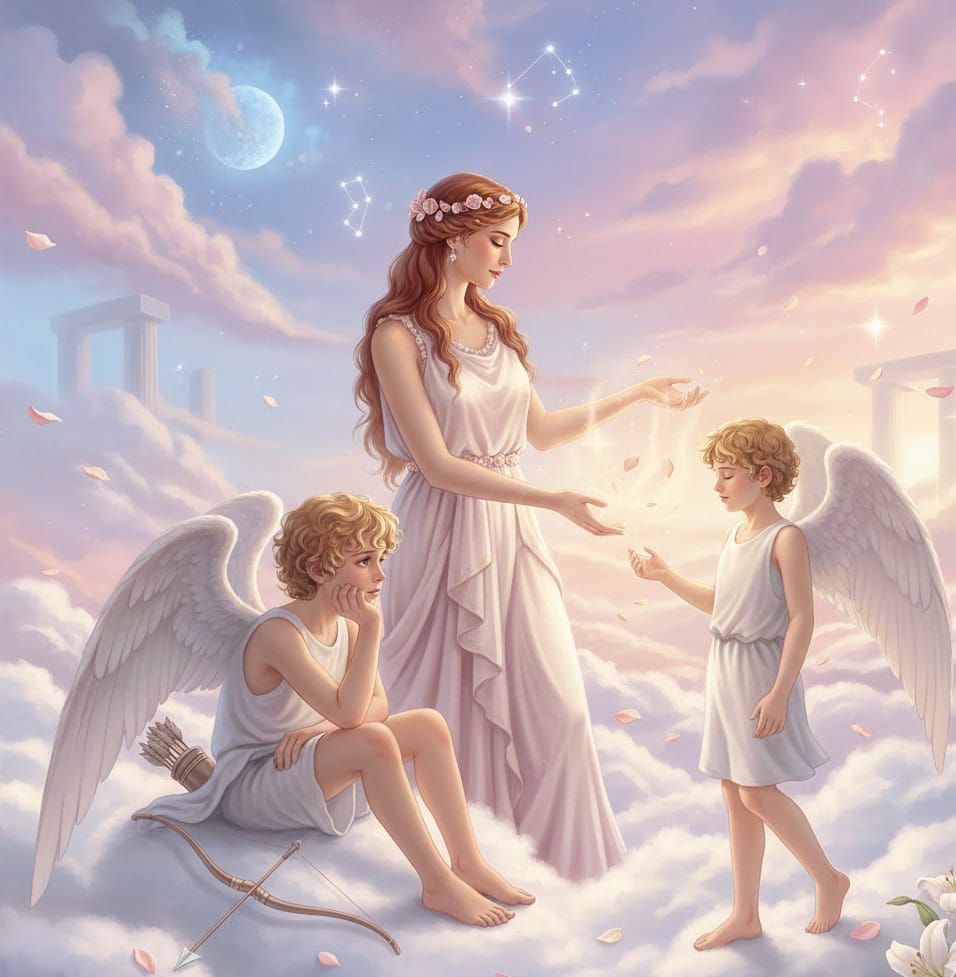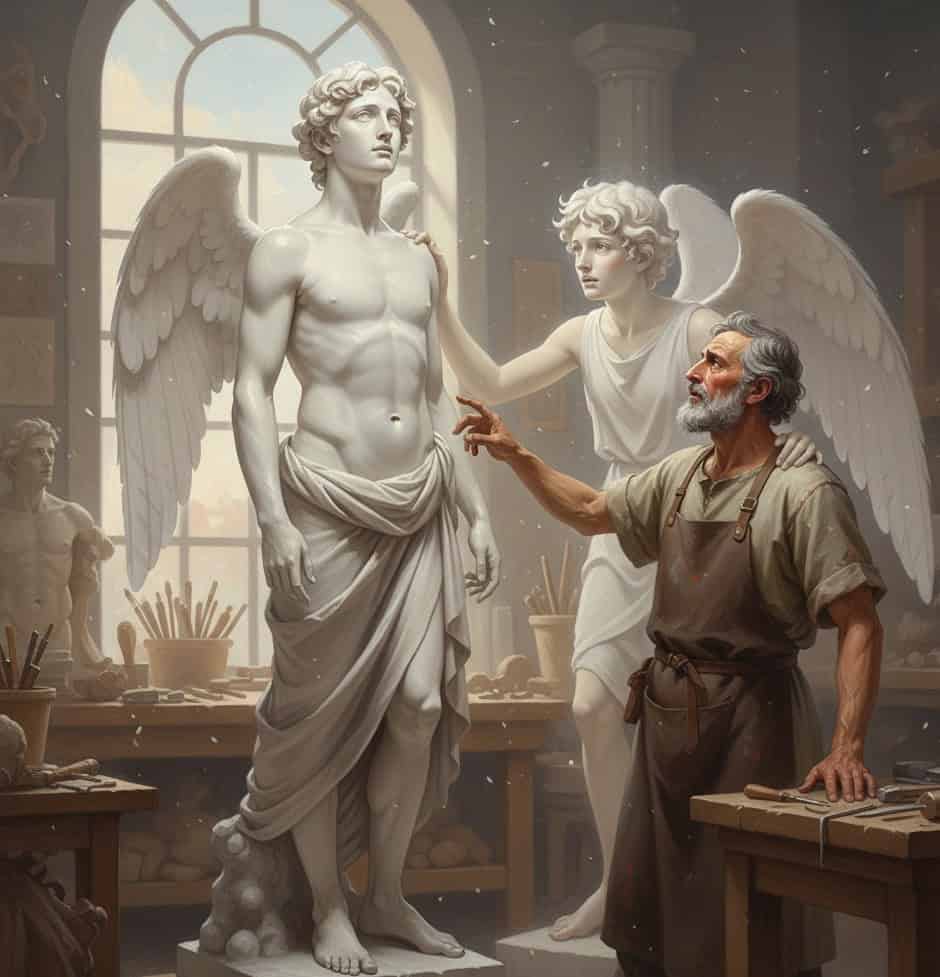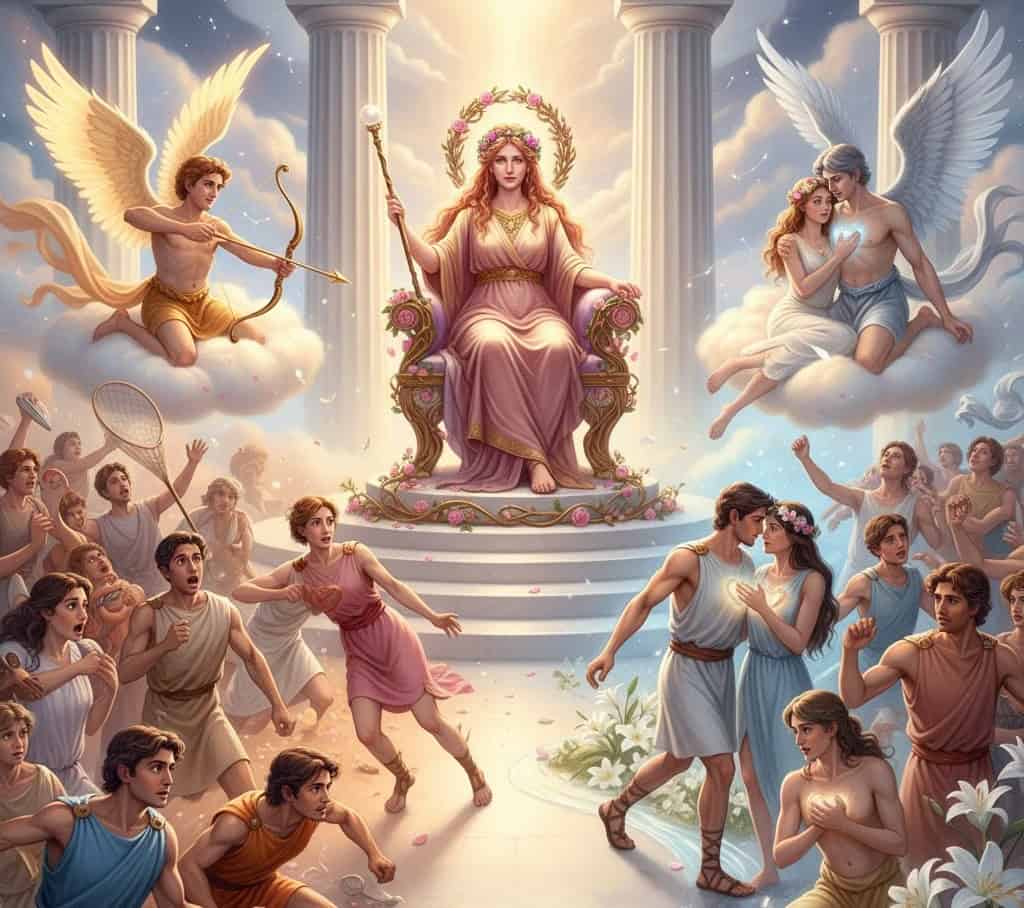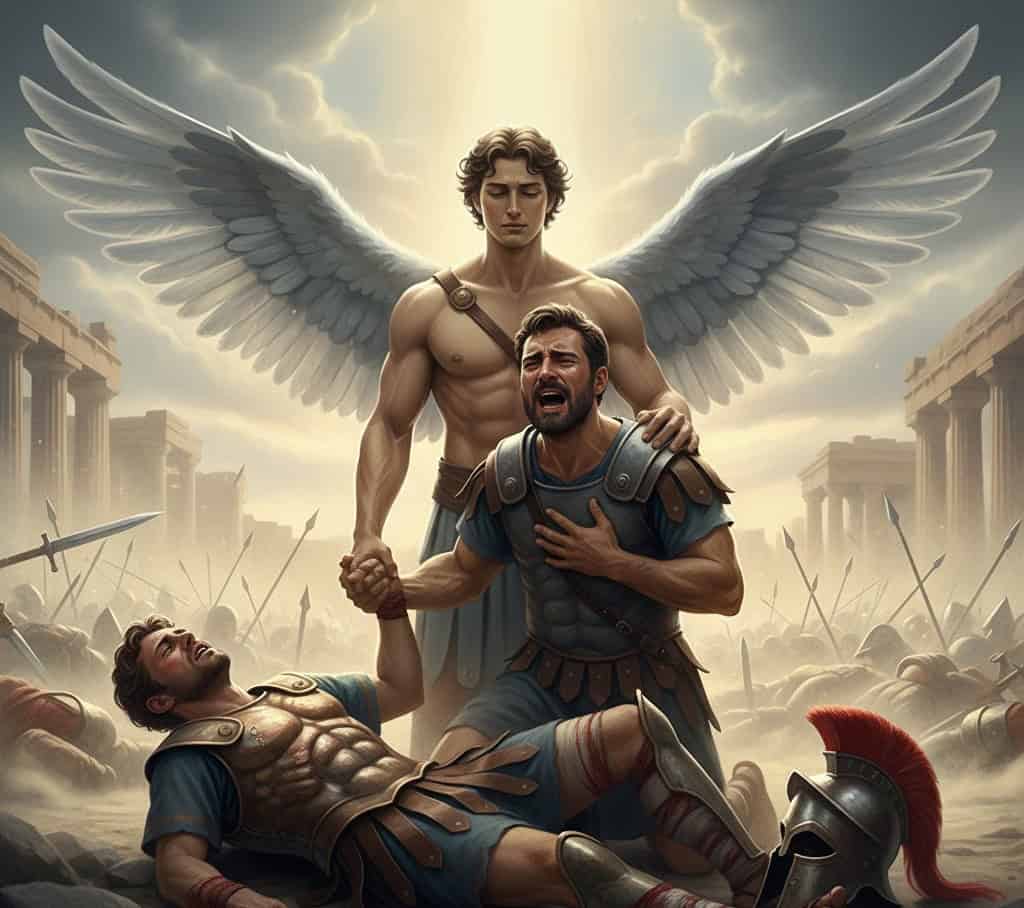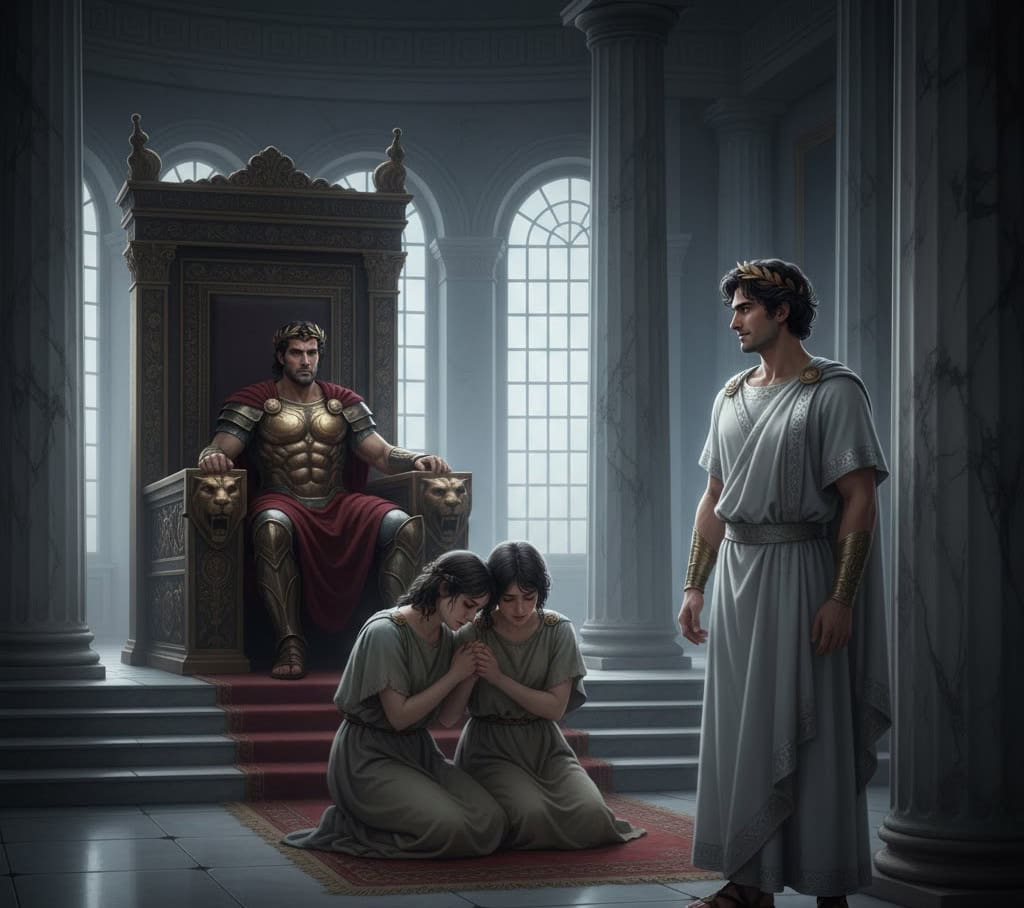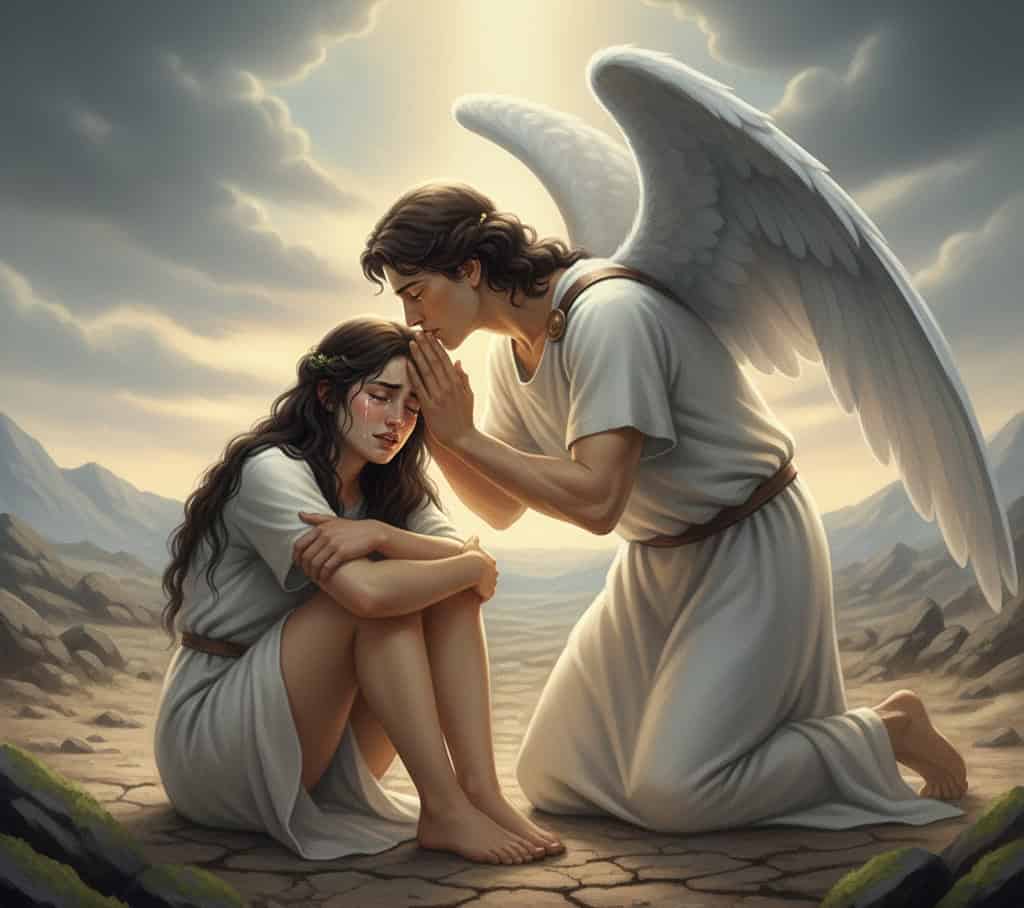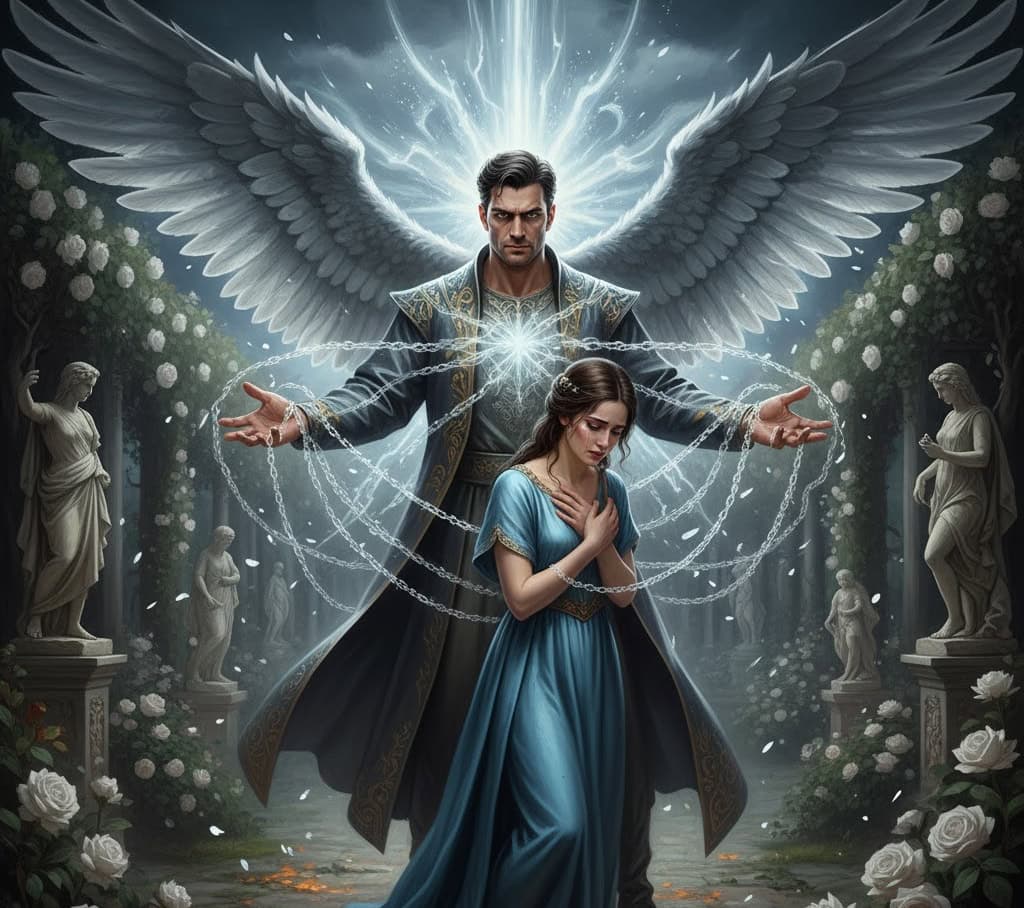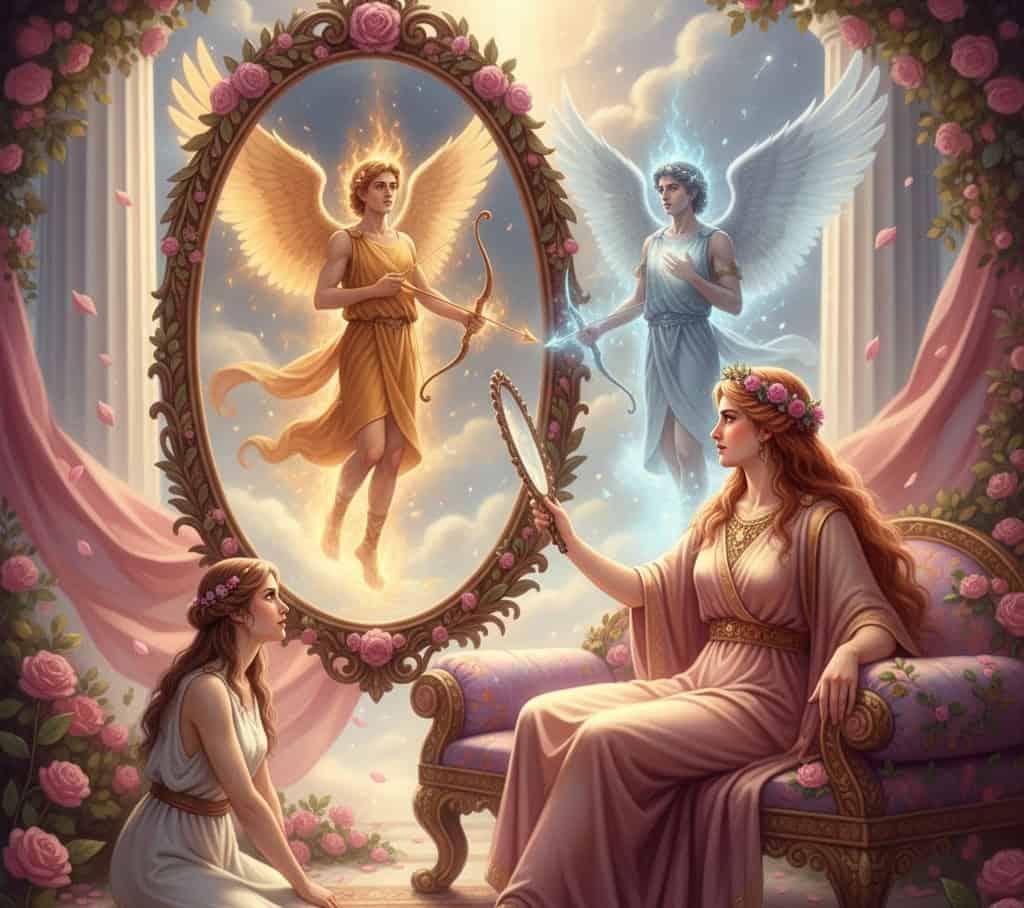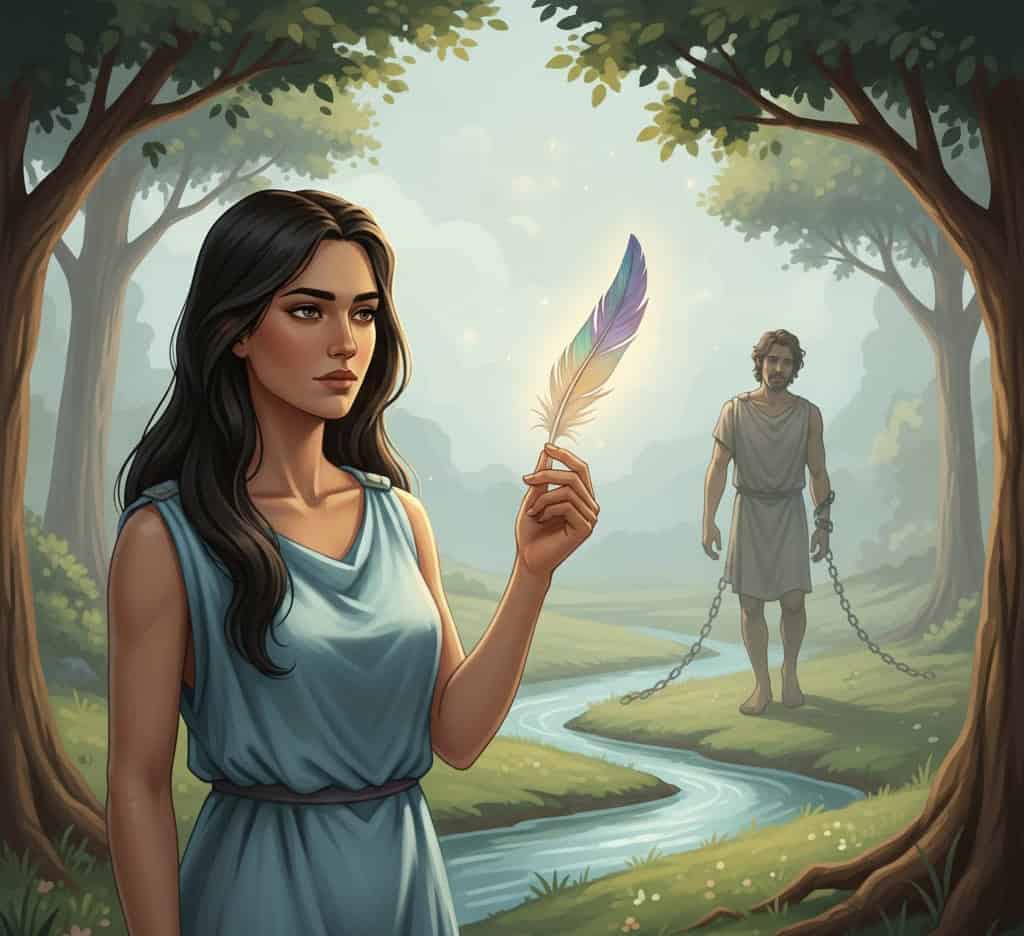Anteros, often forgotten beside his famous brother Eros, was the god of love returned, love rejected, and the pain that lingers in between.
His name means “love in return,” yet his role went far beyond romance. He represented the balance that makes affection real — the idea that love must be mutual to survive.
Without Anteros, passion could turn cruel, selfish, or hollow. Ancient poets saw him as the shadow of love’s light, the god who punished indifference and rewarded devotion.
His stories, scattered across myth and poetry, reveal a god who understood both tenderness and heartbreak better than anyone else on Olympus.
1. The Birth of Balance
According to legend, Anteros was born because Eros felt lonely. When Eros came into being, he spread desire and attraction everywhere, but there was no balance.
Love existed, but it was one-sided, restless, and incomplete. Aphrodite, seeing her son’s struggle, created Anteros as his opposite and his complement.
When Anteros was near, Eros’s power grew stronger, and love became reciprocal. But when he was absent, love turned to obsession or pain.
The brothers represented two halves of the same emotion — desire and return. Together, they taught mortals and gods alike that real love must flow both ways.
2. The Statue That Came to Life
One of the earliest stories about Anteros tells of a sculptor from Athens who carved a statue of a beautiful youth.
The artist prayed to Aphrodite that someone might return his devotion, for he had fallen in love with his own creation.
The goddess, amused, brought the statue to life — but not as the sculptor’s lover. It became the form of Anteros, who looked upon the mortal with compassion and sorrow.
Anteros told him, “Love given to what cannot love you back is the root of all suffering.” The sculptor wept, realizing that his obsession had blinded him.
This tale showed that Anteros did not mock unrequited love, but he demanded recognition of truth — that affection should be shared, not worshiped.
3. The Contest of the Two Brothers
Eros and Anteros were once said to have competed before Aphrodite to see whose power was greater.
Eros shot his golden arrows to ignite passion in mortals, while Anteros touched their hearts to bring understanding and equality.
When Eros’s arrow struck, people chased after those who did not love them. When Anteros spread his wings, couples found mutual joy and balance.
In the end, Aphrodite smiled and declared both sons necessary. Desire without compassion burns out, and compassion without desire fades into stillness.
The brothers embraced, and from that moment, love and reciprocity became intertwined in the hearts of humankind.
4. The Love of Iasos and Timander
Among mortals, Anteros often appeared in tales of friendship and devotion between equals. One such story told of Iasos and Timander, two soldiers who fought side by side.
When Timander fell in battle, Iasos cried out to the gods, begging for death. Anteros appeared and told him that true love did not vanish with the body.
He gave Iasos the strength to live on and honor his companion’s memory. In time, Iasos built a shrine to Anteros, dedicating it to those whose love was loyal beyond loss.
This myth later inspired the Athenians to create the Temple of Anteros, a place for lovers and friends to swear eternal fidelity.
5. The Punishment of the Cold-Hearted King
A cruel king once boasted that love was for the weak. He scorned the prayers of young couples and forbade marriages among his people.
Aphrodite sent Anteros to teach him a lesson. The god disguised himself as a handsome youth and entered the king’s court.
The king found himself drawn to the stranger, unable to explain his growing affection. When he confessed his feelings, Anteros revealed his true form.
The god’s wings unfolded, and the king’s heart filled with unbearable yearning that could never be satisfied.
He finally understood the pain he had caused others. Anteros did not strike him down but left him to wander his kingdom, filled with longing, until he learned compassion.
6. The Whisper to Psyche
When Psyche was separated from Eros after breaking his trust, she wandered the world in sorrow. It was Anteros who came to her one night in a dream.
He told her that love without understanding is fragile and that only when both hearts forgive can love return. His words gave Psyche hope to continue her trials and seek reconciliation.
Though his name is rarely mentioned in her story, ancient poets said it was Anteros who guided her to redemption.
He did not shoot arrows or cast spells. Instead, he inspired courage, showing that healing love comes from empathy and persistence.
7. The Winged Avenger of Rejected Lovers
In some myths, Anteros was not gentle at all. When mortals mocked or mistreated those who loved them sincerely, he appeared as a vengeful god.
A poet once sang of a man who toyed with a woman’s affection, making promises only to humiliate her. Anteros appeared in a flash of light and struck the man with invisible chains of loneliness.
No one returned his words of passion ever again. His charm faded, his laughter hollowed, and he grew old surrounded by admirers who never truly cared.
The story served as a warning — rejection given with cruelty invites divine retribution. Anteros was not punishing love lost, but love wasted.
8. The Mirror of Aphrodite
Aphrodite once gazed into her mirror and saw not her reflection, but the image of her two sons, Eros and Anteros.
In the mirror’s depths, she saw one pair of wings burning with gold and the other shimmering silver. The golden wings spread desire, the silver wings returned it.
The goddess realized that even she, the embodiment of beauty and charm, depended on both. Without Anteros, her admirers loved only her form and not her soul.
In gratitude, she placed him beside her in the heavens, ensuring that every act of love would carry both giving and receiving.
The myth of the mirror became a favorite among poets who saw in it the balance that keeps love alive.
9. The Story of the Blind Musician
A musician who could not see was known for his songs about love. People wept when he played, for his melodies carried the ache of longing.
One night, as he performed under the stars, Anteros appeared beside him. The god asked him why his songs were so sorrowful.
The musician said he sang only of love unreturned, for that was all he knew. Anteros touched his heart and said, “Then learn to love the world itself.”
The next morning, the musician woke with a new melody, one that celebrated love in all its forms — the love of friendship, of family, of life itself.
His blindness remained, but his heart saw clearly. This myth captured Anteros’s gentler nature: love does not have to be romantic to be real.
10. The Wings of Justice
In some traditions, Anteros’s wings were said to be heavier than Eros’s. They carried the weight of fairness.
When someone loved selflessly, those wings lifted gently, blessing them with peace. But when love became manipulation or deceit, the wings grew heavy, pressing down on the guilty heart.
One myth tells of a mortal who prayed to Anteros after her lover betrayed her. She asked not for revenge but for understanding.
The god appeared and placed one feather from his wing in her hand. She felt her pain lessen, replaced by clarity.
Her ex-lover, however, began to feel the full weight of his actions. His heart grew restless, and no new affection satisfied him.
The myth taught that love wronged cannot be erased, but balance always returns.

自出生以来,我一直感觉到自己与神灵有着紧密的联系。作为一名作家和导师,我的使命是帮助他人在最黑暗的时刻找到爱、幸福和内心的力量。

